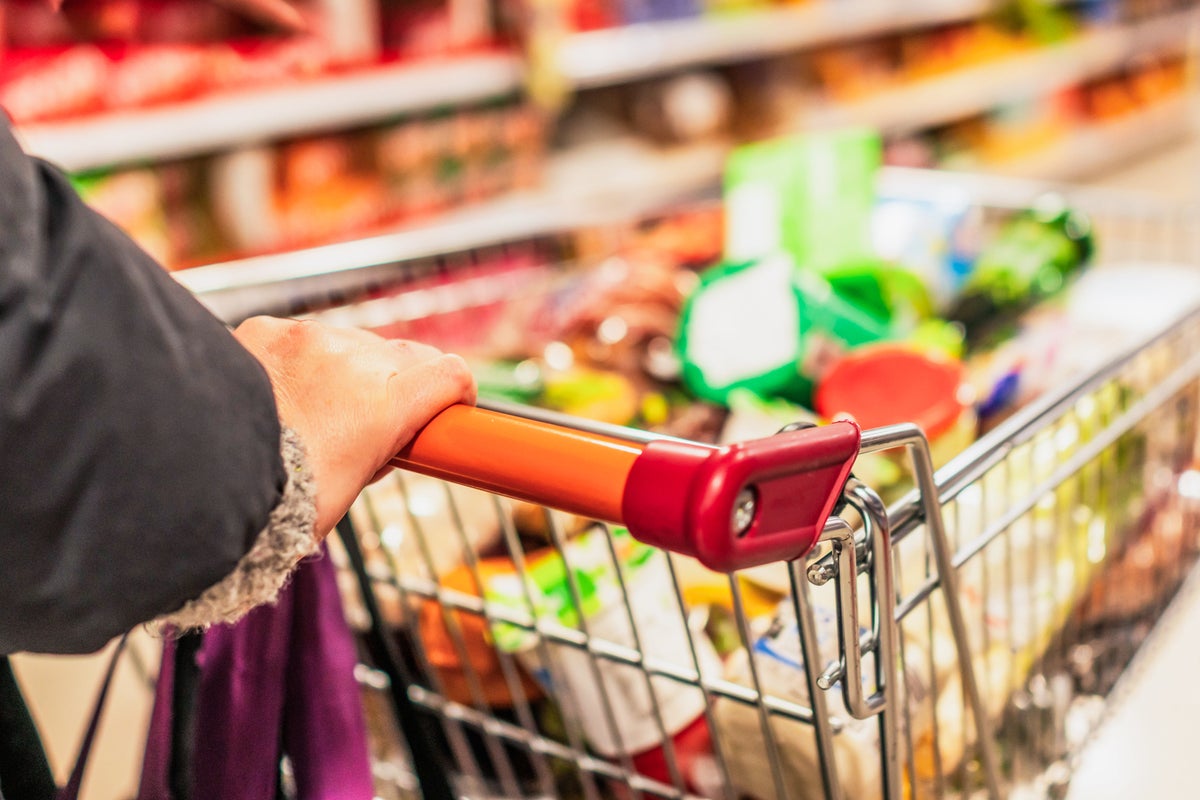Inflation latest: Rising fuel and food costs behind surprise rise

Analysts point to key labour data after rising inflation
Analysts at Barclays says the UK’s CPI is “hot compared to international peers”, after rising to 3.6 per cent.
“UK inflation returned to the international pack over last year but the gap between UK inflation and the EA and US has opened up again, both in core and headline, since April’s tax changes and indexation bump,” the report read.
On interest rates, they added:
“This tricky print for the BoE should keep it cautious and gradual. The overshoot in inflation itself is problematic but, we think, within the tolerance range of the MPC for data outturns relative to its forecast, especially given the role played by airfares and the fact that core goods is undershooting relative to the May forecast. Of more concern will be the lack of progress on underlying services, which will likely give the central MPC members enough reason to remain cautious, even as we expect the labour market loosens in the coming months.”
Karl Matchett16 July 2025 10:21
Inflation figures: Explaining the fuel situation
One point worth picking up on is fuel.
That’s a contributor to rising inflation…but fuel prices are actually going down at present. So how does that work?
The answer is in the year-on-year comparison, as Steve Clayton, head of equity funds at Hargreaves Lansdown, explains.
“The Office for National Statistics highlighted fuel prices as the main driver of the increase. Fuel prices are actually going down, but not as quickly as they were a year ago, which means that increases elsewhere are felt more acutely in the overall figure,” he said.
“Services pricing remains stubbornly strong too, with the pace of service price inflation sticking at 4.7%.
“So far, the Bank of England has held to the view that rising unemployment will drag inflation back down later in the year. But traders will fret that cutting rates while prices are accelerating may be asking too much of the Bank’s confidence in its own predictions.
“Sterling has reacted positively to the news, with investors betting that the news could push rate cuts further out into the future. The pound has risen to just over $1.34, putting an end to now for the weakening trend that we have seen in the last few trading sessions.”
Karl Matchett16 July 2025 10:02
Inflation, interest rates and stagflation – BoE face a fight
Dan Coatsworth, investment analyst at AJ Bell, gives a rundown on the Bank of England’s journey over the last few years and where the battle lines are now to fight off stagflation:
“There is a real threat of stagflation as the rate of inflation moves higher and the economy is stuck in the mud. It puts the Bank of England in a tricky situation.
“Interest rates shot up between 2022 and 2023 to fight off the rapid rise in inflation. The central bank then began its journey in August 2024 to bring rates back down and markets were expecting the cost of borrowing to fall to 3.75% later this year.
“As it stands, the market expects an 81.9% chance of a rate cut in August, but there is a lot less confidence in future cuts. The latest inflation figures might encourage the Bank to sit on its hands and wait for more data to see if the spike in the cost of living is only temporary. However, its rate decisions are also influenced by what’s happening in the jobs market and the outlook is far from rosy.
“Plenty of companies are feeling the pressure of extra employment-related costs and they’re reluctant to hire new people when someone leaves; others are already cutting positions. This means the Bank is stuck between a rock and hard place.”
Karl Matchett16 July 2025 09:44
Will interest rates be cut in August? The key factors for the Bank of England and 2025 predictions
The base rate – currently at 4.25 per cent following cuts in February and May – impacts consumers and taxpayers through everything from their mortgages to savings, so what do experts foresee both next week and beyond?
Karl Matchett16 July 2025 09:30
Inflation figures a ‘punch to Bank of England’ intent to cut interest rates
Not everyone feels it’s a done deal for an August rate cuts at this point.
Peter Stimson of MPowered Mortgages predicts that at least some of the MPC members will vote to hold interest rates at 4.25 per cent in a few weeks.
“The intake of breath at the Bank of England will have been audible. Such a big jump in CPI isn’t just a blow for the Bank’s ratecutting plans, it’s a punch to the solar plexus,” he said.
“Inflation like this can no longer be dismissed as a blip. It’s now a barrier to cutting interest rates.
“The Bank’s Governor has spent weeks hinting that a Base Rate cut in August was all but a done deal.
“But that certainty has evaporated in the face of today’s inflation data.
“Several members of the Bank’s ratesetting Monetary Policy Committee (MPC) had sounded unconvinced that the time is right to cut the Base Rate to give the stagnant economy the boost it needs.
“Britain’s inflationary relapse will crystallise that view, and when the MPC meets in three weeks’ time it’s likely several members will vote to hold off on a rate cut.
“While the weakness of the economy means the Bank will be keen to resume rate cuts in coming months, the likelihood of an August cut has plunged from near certain to barely 50/50.”
Karl Matchett16 July 2025 09:15
Savers to be offered deals that could see them more than quadruple their wealth
Savers with cash in low-interest bank accounts will be contacted and encouraged to consider more lucrative investments, under Rachel Reeves’ plans to boost the economy and raise wealth.
One example offered by the Treasury on how people can benefit showed that a saver investing £2,000, such as in a stocks and shares ISA or general investing account, rather than letting it sit in a low-interest account, could expect that to grow to £12,000 after 20 years.
That was compared to £2,700 if left in a savings account – a difference of more than £9,000 for families or individuals, or around 4.5 times more.
Karl Matchett16 July 2025 09:00
Inflation figures mean UK ‘walking tightrope’ for stagflation
Nick Lawson, portfolio manager at Julius Baer, says the UK is looking wobbly in terms of stagflation now – not just through inflation rates but for where inflation is stemming from, alongside those poor growth figures we’ve seen.
“Wednesday’s CPI print might cause a headache for the Bank of England, and makes the Chancellor’s difficult job that little bit more intolerable,” Mr Lawson said.
“Coming in at 3.6%, ahead of analysts’ forecasts of 3.4%, means traders, mortgage holders and the Treasury will be anxiously awaiting the next Monetary Policy Committee decision.
“Core CPI – which removes the effects of energy, food, alcohol, and tobacco – was even higher, at 3.7%. This will likely mean nervousness in the Bank that today’s figures can’t be chalked up to the more volatile peripheral components of the data.
“Let us not forget the dismal recent performance of the UK economy, with negative growth in both April and May. We’re sure the Bank of England would dearly love to give borrowers and businesses a break by cutting rates, and that Ms Reeves would love to see a modicum of her fiscal headroom restored.
“Instead, as tariff and tax impacts seemingly start to bite, Britain teeters on the edge the nastiest of economic nightmares: stagflation. The Bank has long talked of ‘gradual and careful’ rate cuts. Today, the tightrope they walk got a little higher and a little more perilous.”
Karl Matchett16 July 2025 08:44
How rising inflation impacts your mortgage and savings
In part as a result of this sticky inflation, the Bank of England (BoE)’s Monetary Policy Committee held their vote to maintain interest rates at 4.25 per cent in June, following a cut in May.
Here’s how it all impacts your money, your mortgage and savings:
Karl Matchett16 July 2025 08:30
Inflation latest: Key economist still backs interest rates cut in August
There will be plenty more discussion going forward over whether the Bank of England (BoE) will cut or not next month – but one analyst is still predicting an August interest rates cut.
Sanjay Raja is Deutsche Bank’s chief UK economist, a prominent voice in the sphere.
He notes the poor data from a BoE perspective, but thinks the Monetary Policy Committee’s (MPC) focus on jobs and growth means we’ll still see a rate cut.
“Perhaps given the focus on the labour market, tomorrow’s data may hold more weight when it comes to shaping the monetary policy outlook,” he said.
“But today’s data won’t give the MPC any sense of comfort on the inflation side. Headline CPI, core CPI, services CPI, and core goods CPI now all sit above Bank staff projections. All of the Bank’s core services measure have also increased in June.
“And we expect headline CPI to push closer to 4% year on year after the summer, before beginning its slow descent back to target later next year. The Bank, like us, will be watching closely the implications on inflation expectations, which already look a bit uncomfortable.
“This kind of data (in and of itself) won’t motivate the MPC to contemplate faster or sequential rate cuts. In fact, the bar for a dovish surprise on tomorrow’s labour market data will likely rise on the back of today’s inflation reading.
“Is an August rate cut in jeopardy? No, we don’t think so. There’s enough of a slowdown in GDP and the labour market to warrant a ‘gradual and careful’ easing of monetary policy. But the onus now rests on the labour market to shape how far and how fast the MPC can cut this year and next.”
Karl Matchett16 July 2025 08:20
Inflation latest: Which foods have been hit hardest?
A few details now on where food price increases have stemmed from, courtesy of the Food and Drink Federation (FDF):
- Beef and veal rose 20.4%
- Butter (20.0%) also showed a big increase
- Chocolate (16.3%), coffee (12.3%), and lamb and goat (10.2%) were also notable rises
- Prices fell fastest for: olive oil (-9.6%), rice (-3.1%), sugar (-2.6%) and frozen seafood (-1.3%)
Balwinder Dhoot, director of sustainability and growth at the FDF, explained where exactly the food price rises have come from – and where the government can protect against it.
“Food and drink inflation has risen once again in June, continuing a concerning trend in 2025. Food and drink inflation has consistently outpaced the overall rate of inflation throughout the year, and seen sharp increase in the past 12 months – and we expect inflation to rise further this year.
“The pressure on food and drink manufacturers continues to build. With many key ingredients like chocolate, butter, coffee, beef, and lamb, climbing in price – alongside high energy and labour expenses – these rising costs are gradually making their way into the prices shoppers pay at the tills.
“The Government’s new Food Strategy is an opportunity to create a more resilient food system. This should include looking again at the costs and regulations facing food and drink manufacturers in order to address creeping price inflation.”
Karl Matchett16 July 2025 08:12
[title_words_as_hashtags




